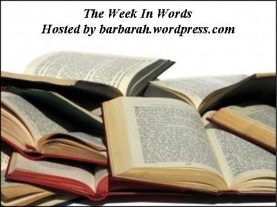The Horse and His Boy opens innocently enough, with the fisherman’s hut by a little creek on the sea, where a young boy named Shasta lives with an old fisherman he calls father. But our eyes, like Shasta’s, quickly move northward, to the unknown land beyond the hilled horizon.
Our hearts yearn to know this hidden place; and we are heartbroken at Arsheesh’s lack of curiosity and lack of tolerance for Shasta’s curiosity.
We, unlike Arsheesh, can identify with Shasta’s plight. We know the feeling of piddling about here, all the while thinking that something great, something better, something magnificent lies over the next hill. We feel out of place, uncomfortable. We pretend we’re not out of place, but we know deep down inside that this is not our home.
We long for the North.
Then, one day, as Arsheesh sups with an unexpected guest, Shasta overhears the story that would have him hop the nearest horse and take off for the North.
*Spoiler alert*
The man he called his father was not his father. The man he had struggled unsuccessfully to care for was little more than a slaver, and undeserving of Shasta’s affection. The fishing hut was not his home–probably Caloremen was not either. In fact, he might even be a son of the only-longed-for North.
Here, Lewis sets up in story form what he expresses elsewhere in plainer terms:
“f I find in myself a desire which no experience in this world can satisfy, the most probable explanation is that I was made for another world.”
Shasta becomes outwardly what he had been inwardly all along–a wanderer, groping in the dark for something, he knows not what.
When he first discovers the truth that he is not really Arsheesh’s son or a son of Calormen, his mind moves towards fantastic dreams. So he was not the fisherman’s son–then perhaps he was the son of a Tarkaan or of a god! Perhaps the Tarkaan who wished to buy Shasta would later adopt him as a son, making him great.
He wonders aloud what the Tarkaan is like, and a talking horse interrupts his reverie with an answer.
In a series of fortuitous or not so fortuitous events, what had once only been an idle dream of seeing the north became an imperative. Shasta must escape to the north, must make his way out of this place.
And so the blind man’s longings become desperate gropings.
“From one man he made all the nations, that they should inhabit the whole earth; and he marked out their appointed times in history and the boundaries of their lands. God did this so that they would seek him and perhaps reach out for him and find him, though he is not far from any one of us.”
~Acts 17:26-27

This post is notes from my reading of The Horse and His Boy for Carrie’s Chronicles of Narnia Reading Challenge.





